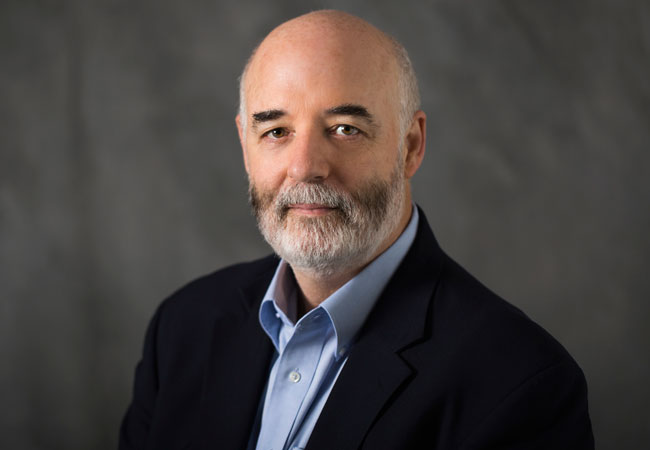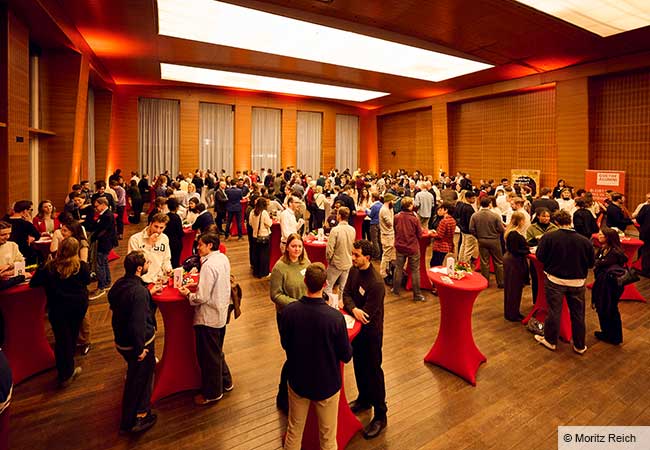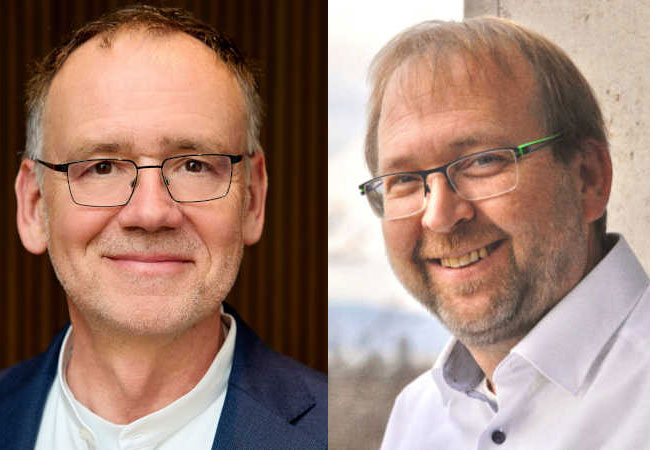
Scientists looking for new tumor viruses have to keep an eye out for the virus genes rather than the viral particles. This year’s winners of the Paul Ehrlich and Ludwig Darmstaedter Prize were twice successful with this strategy.
Two Americans, Yuan Chang and Patrick S. Moore, will receive the 2017 Paul Ehrlich and Ludwig Darmstaedter Prize today in Frankfurt’s Paulskirche for their discovery of the tumor viruses HHV-8 and MCV by means of a clever subtraction strategy. HHV-8 is the human herpesvirus 8, and MCV stands for Merkel cell polyomavirus. „With their decision to search for the viral genes rather than the viral particles, the prizewinners have taken a major step forward in the hunt for new human tumor viruses and have laid the foundation for further discoveries. The discovery of further human tumor viruses in future remains a distinct possibility,“ wrote the Scientific Council in substantiating its decision. One in every six cancers in the world is related to a viral infection However, the risk of cancer from a viral infection is lower in the Western industrial countries than in the developing world. Yuan Chang is Professor of Pathology at the University of Pittsburgh Cancer Institute. Patrick Moore is Professor and Director of the Cancer Virology Program at the University of Pittsburgh Cancer Institute. They are a wife and husband team.
HHV-8 causes Kaposi’s sarcoma, a tumor of the blood vessel cells, which can be seen on the skin with the naked eye owing to its pronounced red or purplish spots. The tumor occurs mainly in AIDS patients. In their search for HHV-8, Chang and Moore subtracted the entire human genome from the genomic DNA of the tumor cells. The idea behind this approach was that the remaining sequences would, in the best case, belong to the tumor virus and not to the human genome. Following this strategy, the prizewinners isolated two small DNA fragments that they were eventually able to assign to a new herpesvirus. When they published their findings in 1994, they named the virus Kaposi’s sarcoma-associated herpesvirus (KSHV). It was later given the official name HHV-8.
MCV is responsible for causing Merkel cell carcinoma, an extremely rare, malignant skin cancer. Chang and Moore refined their strategy in the search for the virus causing Merkel cell carcinoma. Fourteen years after the discovery of HHV-8, their approach was no longer to subtract the entire human genome from the tumor DNA but only the RNA sequences, thereby greatly simplifying the search. In addition, the sequences were not subtracted in a laboratory experiment but computationally, for which they used the published human genome sequences.

Chang and Moore not only discovered the viruses but also showed that they are in fact responsible for the two types of cancer. All Kaposi’s sarcomas everywhere in the world contain HHV-8, in other words, not only those that occur in the context of AIDS but also the rare sarcomas that occur sporadically in the USA, Europe and Africa. The infection also precedes the tumor development. It was more difficult to demonstrate that MCV is the culprit in Merkel cell carcinoma because the virus is present in humans‘ normal skin flora. Chang and Moore showed that in all cells of a givenMerkel cell carcinoma the virus is located at the same site in the genome – although the sites will differ between different Merkel cell carcinoma patients. The tumor must therefore have developed from a single cell with integrated MCV, and this fact, along with further findings, confirmed its causal role.
If some tumor viruses are ubiquitous, why does not everyone fall ill? The tumor viruses first have to overcome the cell’s defenses – either by means of cancer genes that they bring with them as with HHV-8 or through mutations as with MCV – and the immune system has to be weakened for cancer to actually develop. Is there a vaccine or treatment for HHV-8 or MCV? „The situation with Kaposi’s sarcoma is disappointing for us,“ says Moore. „Although the community of researchers has found candidates for a vaccine and target molecules for therapy, there is little commercial interest in developing a vaccine or a specific drug therapy.“ Chang adds: „For Merkel cell carcinoma, however, we’re optimistic. Many patients respond to checkpoint inhibitors, some even go into complete remission.“ Checkpoint inhibition is a promising new therapeutic principle in cancer treatment.
The €120,000 Paul Ehrlich and Ludwig Darmstaedter Prize is among the most prestigious international awards granted in the Federal Republic of Germany in the field of medicine. The Prize will be presented by Professor Harald zur Hausen, Chairman of the Scientific Council.
Source: Press Release 15/03/17







